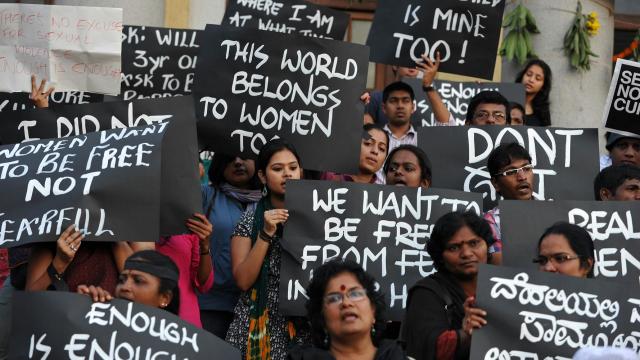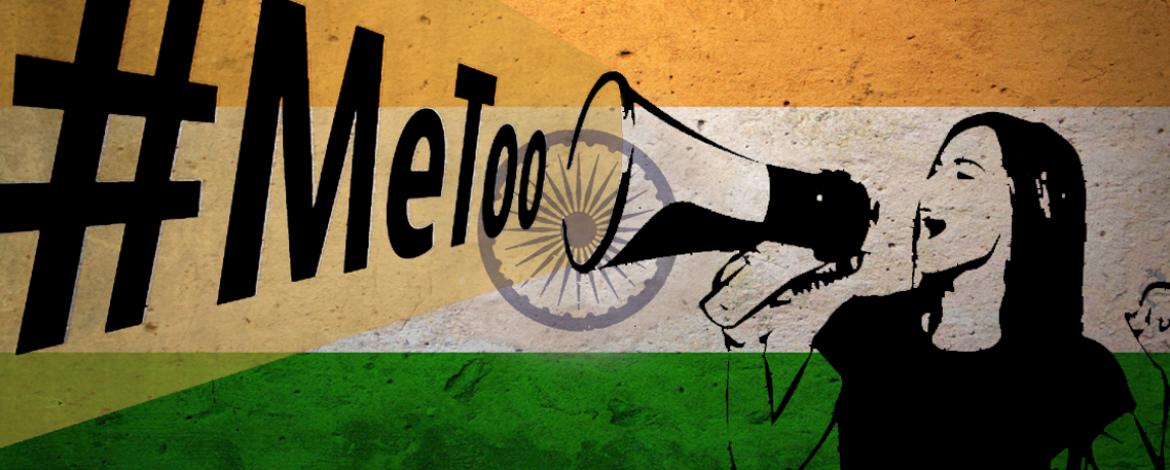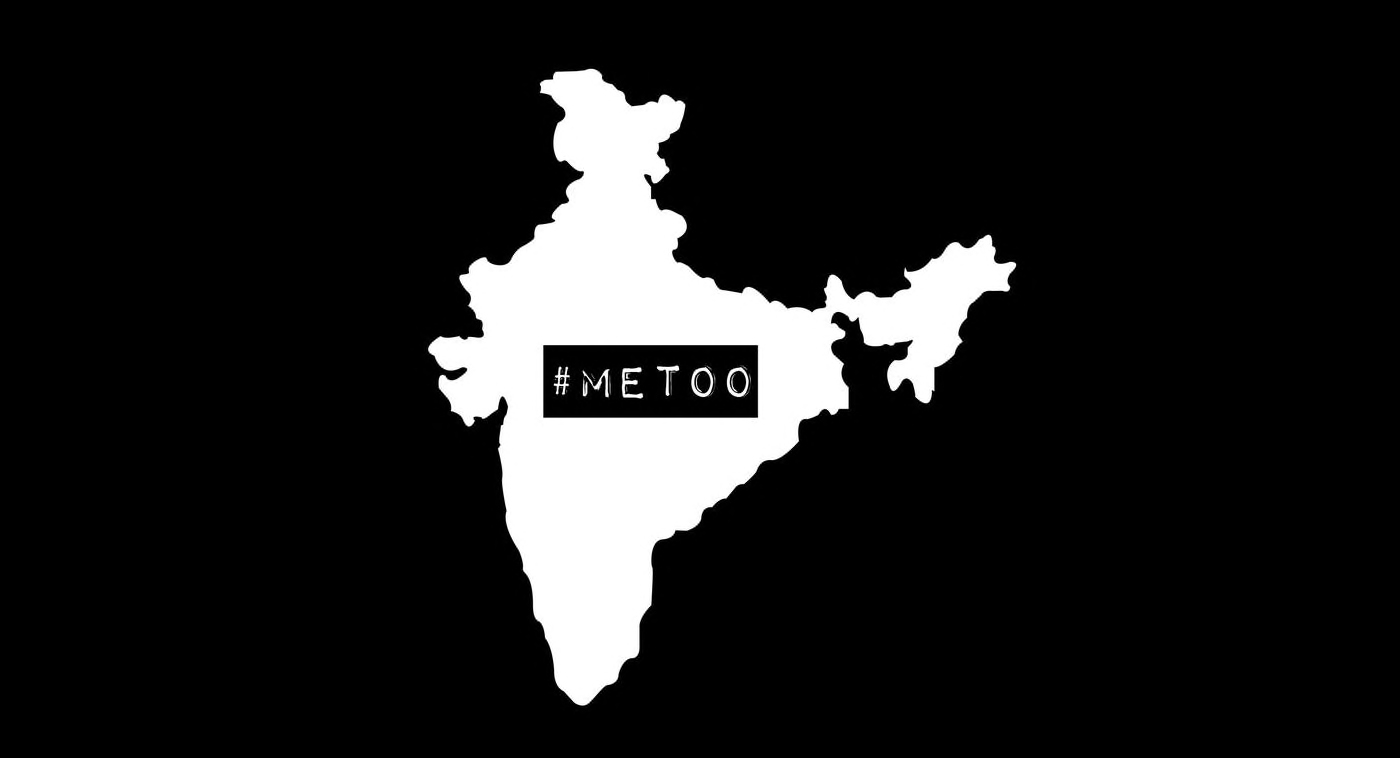
The #MeTooIndia in 2018 movement was hailed as ushering in a new era for digital feminist movements in India. The most high-profile case of digital feminist activism in recent times, the movement clearly differed from prior movements in its breath and impact.
As my work in the area as well as others have shown, Twitter narratives offered engaged resistance and persistent challenge to those in power. Its participants included journalists, students and women from media organizations. In a year since it burst upon the scene, we see that the hashtag continues to be a site of feminist protest and curator of voices demanding change but activists and participants who risked it all have faced horrific backlash and that progress has been slow to come. India’s reckoning with patriarchy is a longer and harder battle than previously considered.
Horrific backlash
While the hashtag swept through the US in October 2017, it took nearly a year for the movement to gain momentum in India. Tweets like: “Groped, assaulted, insulted: my story as a media professional” (2019) abounded. In a society where patriarchy still rules and where gender bias is horrific, the #MeToo movement is not just brave but a full on war cry that promised change in its wake.
Powerful men in sectors of entertainment and media, like former DNA (newspaper) and Times of India editor Gautam Adhikari, former Times of India (Hyderabad editor) KR Sreenivas and Hindustan Times’s Manoj Ramachandran, lost face and position. As activists and participants say, it did not take too long for the backlash to start. In a bid to show support, some organizations asked accused men to go on leave as, ostensibly, “impartial” reviews were set up.
But the results were not favorable. When reporter Priya Ramani accused MJ Akbar, editor and Minister of State for External Affairs, of harassment, he dragged her to court, using all the influence he could muster. Organizations that had promised support had little to offer the women who had risked careers.
MJ Akbar had various men support him and speak for his innocence. Today the case still drags on and Ramani is at the end of her tether trying to balance court, family and a career on the brink of collapse.
Journalist and activist Sandhya Menon, whose Twitter handle @TheRestlessQuil, became of the curators of the tweets, has not had a steady job since June. She recently had to start an online fund to pay her children school fees. “In a statement, the Hindustan Times said, ‘We believe that allegations of that kind are different from journalistic competence of the person concerned.’”
Author Kiran Nagarkar, accused publicly by three women journalists, had his book contracts repealed by publishers Penguin and Random house but found Juggernaut Books to publish and market his writing. Actors like Nana Patekar and Alok Nath, accused of running careers of certain women actors, have returned to lucrative contracts.
Activists are continuing the fight but are exhausted, balancing careers and a movement, that, to most, have become a personal battle. A year later, there is disillusionment, but also a cannier awareness that the “fight must be more guerilla than face to face,” as one activist said. She didn’t want her name published. She was not scared but wanted to conserve her energy to give voice to the many women who rely on her to take their stories to the world rather than deal with trolls or other harassment.
Missing voices
Also, as my analysis of over 50, 00 tweets from the movement show much of the content was posted by educated, English speaking and urbane women. Caste and the voices of those from Dalit, the so-called untouchables in the country, also found very limited space. The #MeToo movement clearly did not reach the unorganized sector whereas the BBC has reported, over 28% of urban and rural poor women that make up nearly 94% of the unorganized work sector in the country face extreme sexual harassment in their workplace (BBC, 2019). Social media may have made it technologically easy for women to participate, hashtag feminism in India clearly shows that only a certain type of woman can and does participate. The lack of diversity of voices is also a direct cause of other issues.
Less than 20 percent of the Indian population has Internet access, and only a small percentage of these users are on Twitter. The Census (2011) has reported that 68.84 per cent of the Indian population lives in rural areas. There is little being done to include their voices on such platforms. The 2014 case in the Shahjahanpur village, Uttar Pradesh, where a 14-year-old was dragged out of her home and set on fire for resisting her rapists is a case in point. Far from the capital city, this event in a remote village drew little attention on social media.
As one activist said, “The idea of a hashtag movement sort of created an impression that all it took was for women to raise their voices. Feminists have always been doing that. Here we were fooled by what we thought was the added power of technology.”
Activism burnout and exhaustion
Activists and participants are exhausted by the unpaid labor that such movements entail. As one activist said, “I have a full-time job and then I respond to tweets and organize support for those who need it.” She said, that while she knew that certain voices gained more traction over others, she did not really consider it her role to ensure that the movement addressed voices of all hues and was inclusive of the poor traditionally marginalized women as well. The activists and participants, interviewed, said, sustaining a movement where at every opportunity Twitter shadow banned their accounts and keeping with the many queries when results were so discouraging was extremely fatiguing.
Citizen journalism: Making the movement more equal
Activists were keen to ensure that the movement was more equal and diverse. As one of them explained, “If Twitter was really keen to support movements of this kind, they would add a voice component like certain citizen journalism organizations do.” And she may have an important point. As the Occupy. Com had earlier reported citizen journalism portals in India provide effective platforms for women from rural areas to work as journalists and highlight important issues.
The activists, interviewed for this story, were keen to explore ideas of citizen journalism to give the movement more breath and momentum. Reporters for citizen journalism portals like CGNET Swara and Video Volunteers have done commendable work in the area of women’s rights and educating men about gender rights. Clearly, they have an important role to play in encouraging greater participation especially from India’s rural poor.
Despite the less than encouraging results, the #MeTooIndia movement is far from over. As the activists said, each day they learn how patriarchy operates in modern India. Each set back is a chance to come back with renewed vigor. The road to meaningful change may be long but these brave participants have fought too hard to give up now.
For access to the data set please write to the author at paromita.pain@gmail.com. Follow the author @ParoP.













